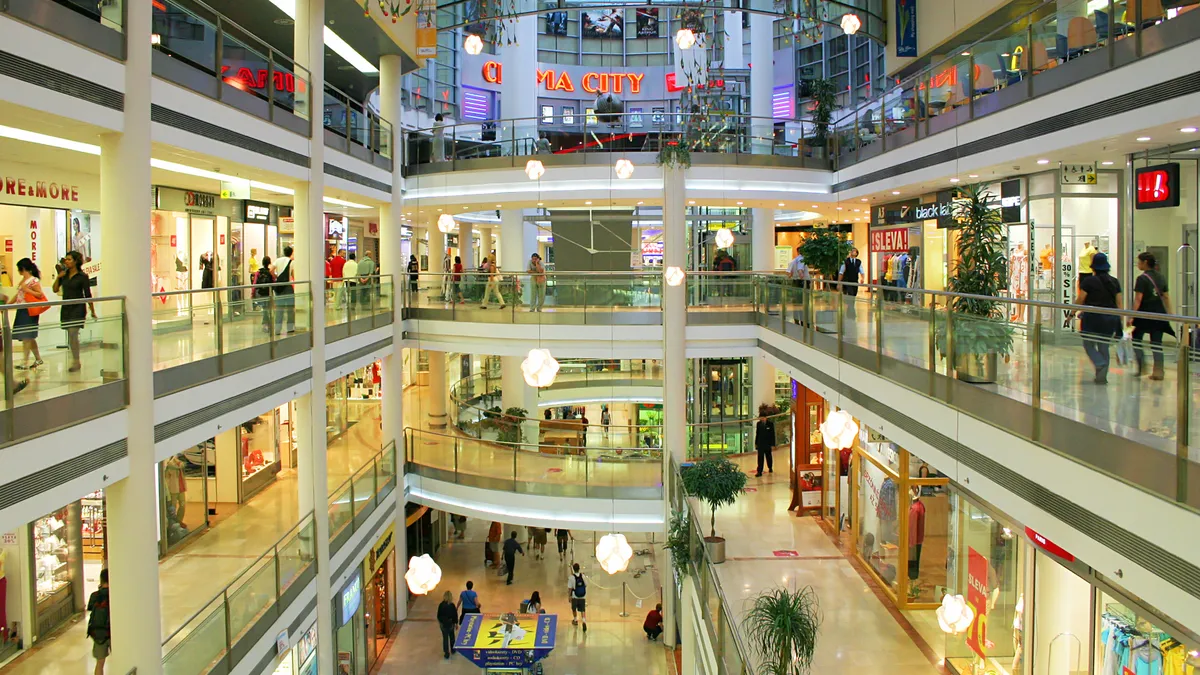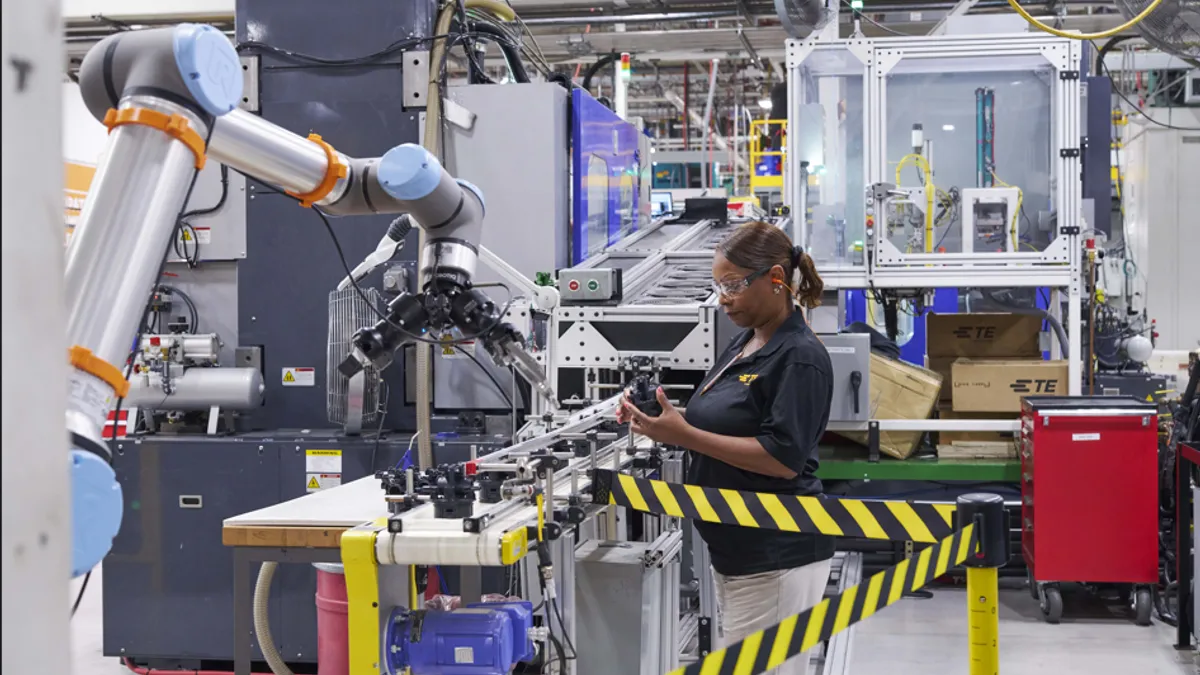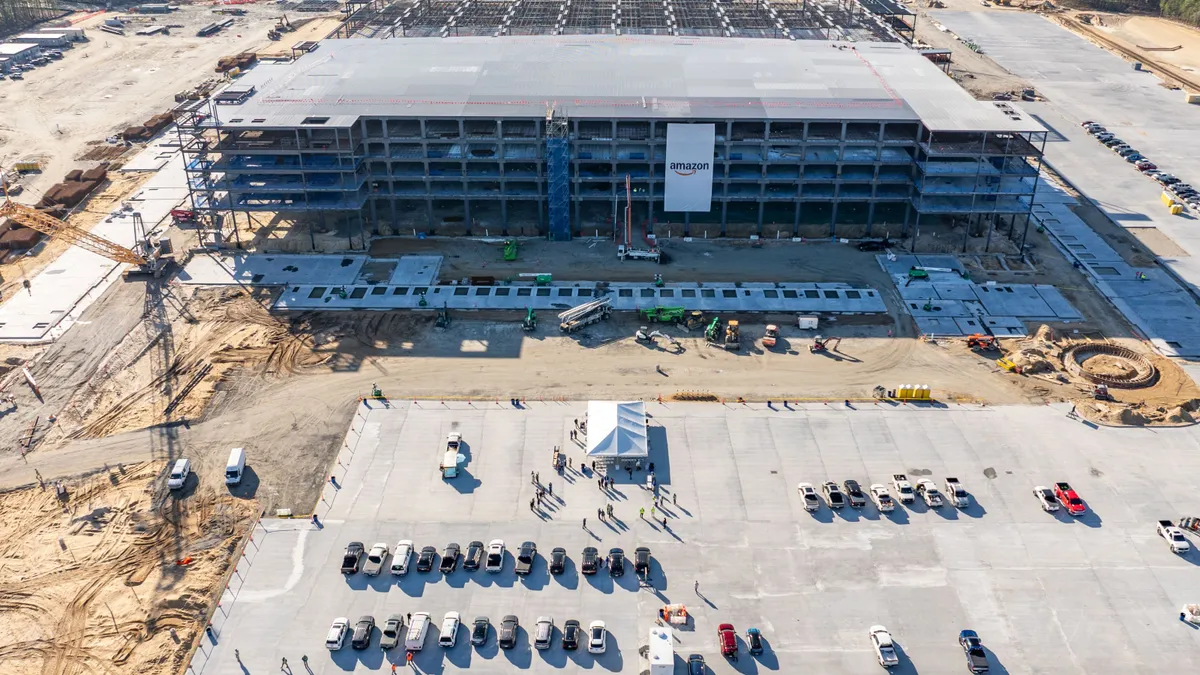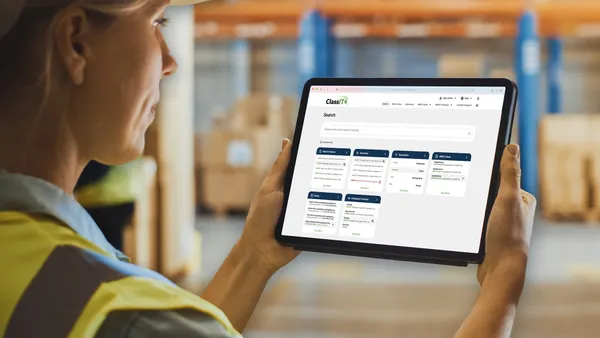Supply chains are constantly changing as new rules, technologies, resources and market trends transform operations. Here's a skim of the week's indexes, technology announcements, expansions and M&As from around the web.
In Case You Missed It
- What is 'supply chain'? A concept? An industry? A function? We think it's all three.
- Last year transformed supply chains, here are 6 stories that show how.
- 2017 may bring the first year of fully automated supply chains, a contributor writes.
Market Snapshot
All the numbers pointed to a remarkable holiday season, yet — in a sign of changing times — recent news reveals major brick and mortar retailers' experience following Black Friday may have left them in the red.
Sears Holdings plans to close 150 department stores, Macy's revealed job cuts could reach 10,000 as it continues to close its own stores, and Kohl's slashed its guidance after weak holiday sales, Retail Dive reports.
The news, while hardly surprising, was shocking. After all, consumer sentiment rose to its highest levels since 2004, leading some to believe this year's holiday would be highly profitable. The national economy has been healthy, too, lending credence to these assumptions.
Yet national statistics only present a baseline or an average, leaving ample room for deviation based on differences in strategy.
While department stores were struggling, Amazon fulfilled a record 2 billion orders this holiday season, for example. UPS' and FedEx's record holiday volumes also show consumers were, in general, buying more ... just not in stores. Finally, the most recent December 2016 Non-Manufacturing ISM Report on Business, which surveys 12 sectors from construction to retail, revealed strong across-the-board spending in December, marking the ninth month of consecutive growth.
On that note, the Institute for Supply Management's manufacturing index suggests the first quarter of 2017 will be marked by strong capital consumption. Inventories continued their decline, backlogs decreased, inflationary pressures ramped up, while overall production and new orders increased for the fourth consecutive month.
Considering lead times, the economic increase will not be noted until the end of the quarter, but given the general index's four-month growth and the previously noted rises in national economic statistics, positive first quarter results should be expected across the industry.
Technically Speaking
If you're looking for a new ERP system, but don't know what the differences are, Panorama Consulting just released its "ERP Software Database," which details the various providers filtered by category. There are three tiers of ERP software, in addition to cloud-based software, and specific vendors for the government, healthcare and hardware industries.
The trucking industry is notoriously slow at adopting new technology, but some companies are being pushed to adoption by an unlikely actor — their insurers. Insurance companies are reportedly offering breaks for drivers who use dashcams, and a new smartphone-based dashcam is becoming popular across the industry. The argument, it seems, is that the practice makes claims less disputable and discourages using the phone for other distractions.
Many believe autonomous cars will join regular vehicles on U.S. roads within the next decade, and China is not one to fall behind. Heavy Duty Trucking reports the Chinese government recently signed a deal with TuSimple to allow the autonomous driving startup to test its technology on public roads by October 2017.
Mercedes-Benz's Daimler is also developing autonomous technology, but it has no intention of stopping at the self-driving car. In September, we reported the company partnered with Matternet to develop a drone-enabled, autonomous last-mile delivery van. Well, it appears the company is now ready to present the concept, and is doing so this week at the Consumer Electronics Show in Las Vegas, NV.
Sound surreal? Just wait until you hear Amazon's latest ideas: the e-commerce giant turned logistics provider won patents for both a flying distribution center and an underground delivery system. Traditional logistics, it seems, is hardly versatile enough for the Seattle, WA-based company.
Breaking Ground
High demand for storage, spurred in part by the rise of e-commerce, has led to an industrial real estate construction boom throughout the country.
Central Pennsylvania, for example, boasts 14.3 million square feet currently in construction, with another 11.3 million square feet occupied by the end of 2016. Another example: The Dallas-Fort Worth region of Texas recently set a regional record with more than 25 million square feet of warehouse space leased in 2016, 22.7 million square feet in completed projects, and another 23% of space under construction pre-leased.
Meanwhile, new projects continue to be announced nationwide. A 1.3 million-square-foot warehouse is being planned in the Chicago; Amazon announced it would open a 1-million-square-foot fulfillment center in Jacksonville, FL – its second in the region; and FedEx received approval to build a 745,478 square-foot distribution center near the Chino Airport in San Bernadino County, CA.
In New Mexico, Los Lunas city officials broke ground on the construction of a 400-acre industrial park, which will include warehouses, manufacturing facilities and distribution centers alike.
Rail infrastructure is also growing across North America, although at a considerably slower pace.
CSX completed the first phase of the Virginia Avenue Tunnel project in Washington, D.C., which has been in development since 2008. The accomplishment will allow the passage of double-stacked intermodal freight between the Mid-Atlantic and the Midwest, American Shipper reports. A second tunnel will be constructed in the next phase of the project.
Finally, Port Metro Vancouver announced it would build a new grain terminal to be serviced by Canadian National Railway, costing over $370 million and slated for completion in 2020, Maritime Executive reports.
Mergers & Analysis
The South Korean shipping industry's recent struggles have led to a wave of deals, mergers and acquisitions throughout each of the industry's subsectors.
In the container shipping world, Hanjin once again made headlines, only this time it was due to its pending assets. Despite Korea Line's successful acquisition of Hanjin Shipping's assets, the company was reportedly forced to forego the operation of Hanjin's trans-pacific container shipping routes, since the drybulk operator lacked experience in the container shipping industry.
Meanwhile, Samsung Heavy Industries won a bid to build an offshore facility in the Gulf of Mexico, marking the first such deal for a Korean company in 18 years and allowing the company to produce 110,000 barrels of crude oil, Korea Joongang Daily reports.
Speaking of Samsung, one of the largest terminals in South Korea's Port of Busan is now majority-owned: global terminal operator DP World purchased Samsung's 23% share in Pusan Newport Company, bringing the former's stake to a majority of 66%. Maritime Executive reports the port handled 20 million TEU last year.
Elsewhere in the logistics world, companies appear to be bringing needed assets in-house. Union Pacific purchased a set of cold chain assets from Railex and Amazon air provider ATSG bought aircraft maintenance company Pemco.
Amazon's entry into logistics mirrors that of its greatest competitor, Alibaba, which made an additional move into the space this week. The Chinese e-commerce giant partnered with Maersk Line, which itself is looking to provide more full supply chain services, to help customers book needed slots online via its OneTouch website.
Descartes Systems Group, the logistics tech provider based in Ontario, CA, agreed to purchase Datamyne Inc. for $52.7 million in December. Datamyne, which provides international trade data to clients, is only the latest acquisition by Descartes. Descartes has been acquiring a number of companies over the past 24 months to bolster its supply chain software portfolio into what it refers to as its "global logistics network," a collection of digital data exchanges built to coordinate shipping and compliance.
In other news, Wabtec was also busy in M&A in 2016, and recently added Workhorse Rail, LLC to the mix. Wabtec is a provider of systems and equipment for transit and freight rail, and Workhorse Rail will add to the company's goals by bringing in-house engineered freight car components.
Shipping giant UPS recently announced that it has completed the acquisition of global supply chain company Marken for an undisclosed sum. Marken adds a strategic piece of the healthcare logistics puzzle to UPS, and the acquired company's expertise will enable UPS to move sensitive materials and specimens globally for biopharmaceutical companies.
Lastly, J.B. Hunt Transport Services has requested to arbitrate its revenue-sharing agreement with BNSF Railway. J.B. Hunt offered assurances that the request is part of the normal course of business between the two companies, who have been partnered since 1990, and will determine if revenues are being divided equitably.






















